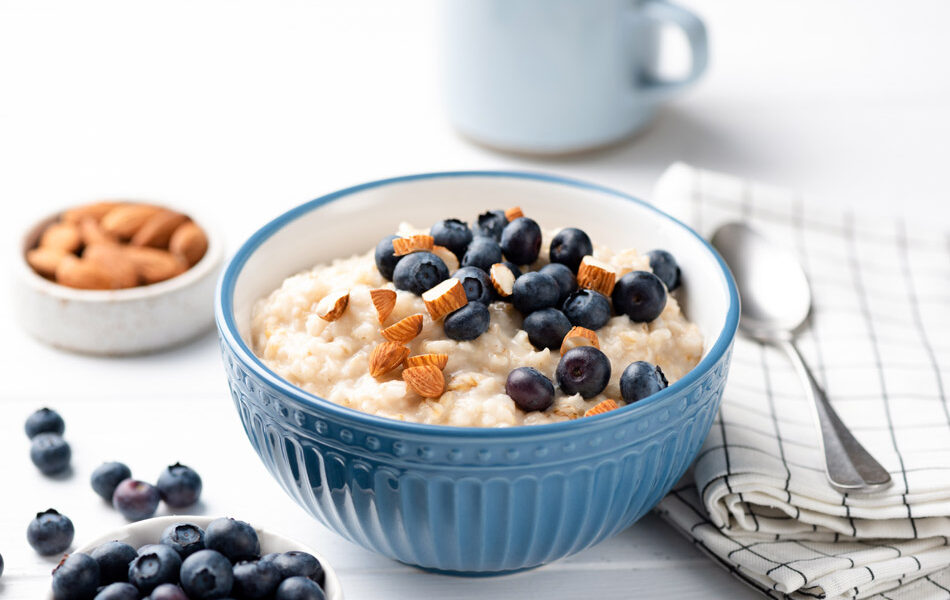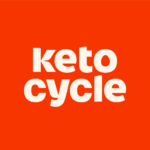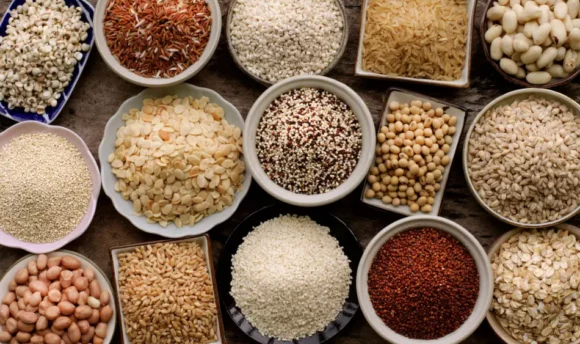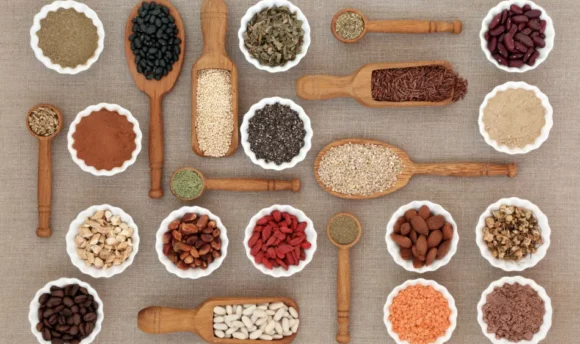Is Oatmeal Good for You? 10 Benefits and Nutrition Facts
Oatmeal is a porridge-like dish that holds many key nutrients. People eat this food to improve their overall health, but is it really good for you? We determine whether oatmeal is healthy, including the top 10 benefits, nutrition facts, and a recipe that is low in calories.

There are many nutrient-dense foods, like oatmeal, that can spice up your diet. The body needs these minerals to function properly throughout the day. Plus, you don’t need to spend a long time making this porridge dish every morning, making it a great choice.
Some people enjoy oatmeal for its high protein content, while others need a rich source of calcium. It depends on what you want to gain from eating this food. Don’t worry, though, because we’re about to share some of its compelling health benefits.
In this article, you’ll learn more about oatmeal and its advantages.
Is Oatmeal Good for You?
Yes, oatmeal is healthy due to its high protein, fat, dietary fiber, and calcium content. Eating more of these nutrients can improve bodily functions. Protein is especially important for protecting the heart and supporting muscle growth.
Studies have shown that oats are one of the healthiest grains. This is because they contain important nutrients for improving long-term health. Some of these nutrients comprise protein, soluble fiber, essential amino acids, antioxidants, and manganese.
You can have oatmeal every day for breakfast. People like to add berries, honey, and Greek yogurt on top to strengthen its nutritional content. There are various recipes to try when using uncooked rolled oats, making them a versatile food as well.
10 Health Benefits of Oatmeal
There are many benefits that derive from eating oatmeal. You can increase your wholegrain oat intake while feeling healthy on a diet. Just remember that a balanced diet still requires other foods like green vegetables, fruits, and lean meat sources.
Keep reading to find 10 health benefits of oatmeal:
#1 Lowers cholesterol levels
Oatmeal contains soluble fiber – a type of dietary fiber that turns into a gel-like substance in your gut. The bile in your digestive tract gets trapped by this fiber, meaning it can’t escape into the blood and contribute to high LDL “bad” cholesterol levels.
A study found that beta-glucan fiber lowers cholesterol by 15%. This is only from regular oatmeal consumption for breakfast. Managing your cholesterol levels decreases the risk of heart disease, damaged arteries, strokes, gut inflammation, and plaque formation.
#2 Improves blood sugar control
People with diabetes can benefit from eating oatmeal. This food has a low glycemic index score that helps to regulate blood lipids. Since type 2 diabetes revolves around high blood sugar levels, it’s important to keep these low when protecting the heart.
Beta-glucan is known to reduce postprandial glucose and increase insulin sensitivity in those with diabetes. So, after consuming oatmeal, you won’t have excess glycogen stores. This is great for keeping the blood healthy and maintaining good glycemic control.
#3 Supports weight loss
Oatmeal, oat flour, or oat groats are one of the best foods to have when losing weight.
This is because oats are very filling and can suppress your appetite. Not feeling hungry as often means you’ll consume fewer calories on a diet. As you might already know, being in a calorie deficit encourages the body to burn more fat for energy.
Fiber-rich foods also release peptide YY (PYY) – a hormone that controls any hunger cravings. The body may not feel the urge to eat once it starts digesting oatmeal. A reduced calorie intake can prevent obesity and other heart-related health risks.
#4 Regulates bowel movements
Again, beta-glucan comes to the rescue when improving your gut health. Any type of fiber increases the weight of your stools. Bulky stool means regular bowel movements throughout the day, which prevents serious constipation, bloating, and stomach pain.
#5 Reduces hunger cravings
Oatmeal is a nutrient-dense food that can satisfy your stomach in the morning. The body takes longer to digest this meal while absorbing most of the nutrients. Being on a low-calorie diet calls for hunger cravings, making oatmeal great for battling that.
The high carb content in oatmeal also counts toward this benefit. Carbs aren’t easily digested, which lowers the hormone ghrelin. People with lower ghrelin levels don’t feel hungry all the time and may make better food choices when trying to lose weight.
#6 Strengthens the immune system
One study found that oatmeal can boost your immune system.
This is because minerals like selenium and copper strengthen white blood cells – a type of cell that fights illness and infection. Better immune responses can combat pathogens, remove foreign substances, fight unwanted bacteria, and prevent long-term diseases.
Copper especially improves the body’s inflammatory responses. This mineral replenishes red blood cells and keeps nerves, bones, and blood vessels healthy. If you struggle with being ill a lot, consider eating more oatmeal in your daily diet.
#7 Enhances athletic performance
People who consume oatmeal or any whole grains are more likely to do better at the gym. Studies prove that eating oats can enhance exercise performance. This means you’ll have the right amount of energy to lift weights or go for a long-distance run.
Due to the high number of carbs, your body can burn more glucose as a consistent energy source. Even having one bowl in the morning will produce greater results. Just make sure to reserve some time between eating and working out to avoid indigestion.
#8 Encourages better sleep
Oatmeal contains lots of minerals that contribute to good sleep.
For example, magnesium regulates neurotransmitters that are related to regular sleeping patterns. A good amount of sleep leads to better moods, higher energy levels, and reduced stress, so it’s worth eating more oatmeal throughout the day.
#9 Fuels the gut
Colloidal oatmeal or normal oat bran can fuel your gut. It promotes healthy gut bacteria that prevent an unbalanced microbiome. Not many people know that your digestive tract controls immune responses, as both of these functions work together to remove toxins.
#10 Replenishes skin
Oatmeal contains nutrients that protect, exfoliate, and cleanse your skin. They also boost collagen production – a process that strengthens skin elasticity and delays wrinkles. People who want to replenish their skin can eat plenty of oatmeal for breakfast.
Selenium also ensures the skin is firm and protected. It stops free radicals from damaging your skin and causing premature fine lines. To protect cell membranes against UV damage, consume selenium-rich foods like oatmeal on your diet.
Nutrition Facts of Oatmeal
Learning more about the nutritional content can help you better manage your daily macros. Oatmeal contains many important nutrients, making it great for any diet. If you want to monitor macros when losing weight, consider studying the table below.
Nutritional value (per 100g)
| Calories/Nutrient (per 100g) | Amount |
| Calories (kcal) | 68 |
| Net Carbs (g) | 10 |
| Fiber (g) | 1.7 |
| Sugar (g) | 0.46 |
| Fats (Total) | 1.36 |
| Protein (g) | 2.37 |
| Vitamins and minerals | |
| Iron (mg) | 5.96 |
| Magnesium (mg) | 26 |
| Calcium (mg) | 80 |
Source: https://fdc.nal.usda.gov/fdc-app.html#/food-details/171662/nutrients
Low calories and fats
Oatmeal is low in calories and saturated fats – two benefits for weight loss. Losing stubborn weight means you have to eat low-calorie foods that are packed with nutrients. There are only 68 calories in oatmeal, making it a great addition to balanced diets.
Low in proteins
Protein is one of the most important nutrients to consume. Oatmeal has around 2.37 grams, but not enough to reach your daily intake. People who are looking to lose weight and build muscle should eat over 60 grams of protein a day to see noticeable results.
High in carbohydrates
There are 10 grams of carbs in oatmeal, which can boost your energy levels throughout the day. You need a consistent source of carbs to fuel the brain, heart, and nervous system. Just be aware that oatmeal isn’t suitable for those on the ketogenic diet.
High in fibers
Beta-glucan is a special type of fiber present in oatmeal. Getting plenty of fiber prevents constipation and uncomfortable bowel movements. The daily recommended intake is 25–30 grams for adults, but this fiber should only come from food and not supplements.
Rich in vitamins and minerals
There are hidden minerals in oatmeal that still contribute to a healthier body. Not many people understand just how much oatmeal positively impacts the body. This is because of all the vitamins that support heart, brain, digestive, joint, bone, and nerve health.
Some vitamins and minerals in oatmeal comprise:
- Phosphorus
- Manganese
- Vitamin B1
- Selenium
- Magnesium
- Copper
- Vitamin E
Oats vs. Oatmeal
Both oats and oatmeal are terms used interchangeably. However, oats refer to raw whole grains, while oatmeal is the porridge-like mixture created from these grains. There are many ways you can prepare oats when making breakfast.
Oats can be mixed with almost anything on a diet, making them a versatile product in your cupboard. For example, some people like to add them to fruit smoothies. You can buy instant oats, old-fashioned oats, steel-cut grains, and oat groats at the store.
However, oatmeal is made using milk or water. Adding liquid and heat to raw oats creates a thick base for your porridge. Colloidal oatmeal, which is made from ground kernel oats, is a fine powder that contains the oat bran, germ, and endosperm.
How to Prepare Oatmeal?
A delicious oatmeal recipe will contain low-calorie ingredients. You don’t need sugary foods to make breakfast taste good. Simple things like honey and natural sweeteners do the trick, so take a look at our recipe below to make your oatmeal even more enjoyable.
Ingredients
- 2 cups unsweetened almond milk
- 1 cup old-fashioned or steel-cut oats
- 1 thinly sliced banana
- 2 tbsp almond butter
- 2 tsp honey (optional)
Directions
- Mix together the almond milk and oats in a medium saucepan. Keep the heat low to ensure all the liquid is absorbed by the oats.
- Add ½ of the banana and almond butter while continuing to stir. The mixture should be thick at this point.
- Remove the pan from the heat and leave it to set for 30 seconds.
- Pour the oatmeal into your desired bowl and top with the remaining banana slices and honey.
Nutrition facts
| Calories | 375 |
| Fat | 6g |
| Protein | 8g |
| Carbs | 66g |
| Fiber | 8g |
For more recipe ideas, consider downloading the Keto Cycle app. This mobile app has 10,000+ recipes that are suitable for weight loss and keto dieters. You can search through meal ideas and grocery lists that could help you achieve a balanced diet.

- Proven scientific data
- Calorie tracker
- Customized meal plans and food prep
- 10,000+ easy-to-make keto recipes (including vegetarian options)
- Full workout schedule
- Motivational tips
FAQs
Yes, oatmeal has plenty of fibers to support digestive health. This makes oatmeal great for constipation and diarrhea problems. Dietary fiber aims to slow down digestion, which softens stools and gives the body time to absorb nutrients from your meals.
The glycemic index of oatmeal is 55. Foods with a low GI score are good for diabetes, as they won’t raise your blood sugar levels. Just remember that adding milk to oatmeal will increase the glycemic index, so aim to use plain water for the recipe instead.
Oatmeal is the perfect breakfast for people who get hungry during the day. Since it contains fiber and protein, your gut will remain full. You can also add foods like strawberries, bananas, natural yogurt, and honey on top of cooked oatmeal.
Many studies prove that eating oatmeal can support weight loss. This is due to the low calorie and saturated fat content. You will also have a reduced appetite when eating this food, which leads to fewer binge eating episodes and sugar-based cravings.
Yes, it’s perfectly safe to consume oatmeal every day. You’ll only be fueling the body with more nutrients, so there’s nothing bad about having the same breakfast. Just remember to monitor how much you eat to ensure you’re consistent with a balanced diet.
Eating oatmeal every day will lead to lower cholesterol, blood sugar levels, and blood pressure spikes. This is because soluble fiber binds some cholesterol in your gut. Over time, your blood won’t contain as many triglycerides and low-density lipoprotein.
A Word From a Nutritionist
Oatmeal consumption does wonders for improving your long-term health. Rolled oats or steel-cut oats can make breakfast much more enjoyable in the morning. Many people like to add fresh fruit, chia seeds, cinnamon, and yogurt to a warm bowl of oatmeal.
For those who don’t feel like making oatmeal, you can try overnight oats instead. This means mixing rolled oats with milk, non-fat Greek yogurt, and honey before putting that in the fridge. You could also include creamy peanut butter or fresh apple slices.
Just remember that instant oats usually come in packets. They can contain preservatives, added sugars, and saturated fats. You want to buy old-fashioned oats at the grocery store, as they’re completely natural and make oatmeal taste better.
Conclusion
Is oatmeal really that healthy?
A bowl of oatmeal contains all the nutrients your body needs. These comprise vitamins, soluble fiber, protein, and good fats. People who want to stay healthy and lower the risk of heart disease should consume more oatmeal in their diets.
Remember to avoid instant oatmeal and stick with pure oat bran, oat flour, or oat groats. Some instant foods can increase blood sugar and the risk of heart disease.

- Proven scientific data
- Calorie tracker
- Customized meal plans and food prep
- 10,000+ easy-to-make keto recipes (including vegetarian options)
- Full workout schedule
- Motivational tips

















































 Select your language:
Select your language: 








